Generally, a homeowners insurance policy includes at least six different coverage parts. The names of the parts may vary by insurance company, but they typically are referred to as Dwelling, Other Structures, Personal Property, Loss of Use, Personal Liability and Medical Payments coverages. They are usually presented as policy sections and are often labeled Coverages A through F. This article discusses Coverage Parts A, B, and C, which protect property.
Coverage A, Dwelling
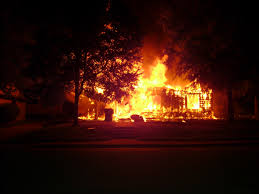 The homeowner policy’s first coverage section protects your house and any attached structures, such as garages, decks or fences. The typical policy covers your home when it is damaged by many perils (also known as causes of loss) including fires or storms. However, the following causes of loss are usually excluded from coverage under the homeowner’s policy:
The homeowner policy’s first coverage section protects your house and any attached structures, such as garages, decks or fences. The typical policy covers your home when it is damaged by many perils (also known as causes of loss) including fires or storms. However, the following causes of loss are usually excluded from coverage under the homeowner’s policy:
- Earthquake
- Flood
- Faulty maintenance
- Damage from insects or vermin
- Wear and tear, gradual damage or deterioration
Coverage B, Other Structures
This coverage section protects structures that are not attached to the home, such as a detached (separate) garage, storage or utility shed playground equipment and swimming pools.
Coverage C, Personal Property
 This covers your possessions, whether they are at your home or away with you on vacation. Personal property is often covered on a named peril basis. This means that only the causes of loss listed in the policy section are covered. The coverage is also subject to limitations and exclusions. Types of property having significant value, such as jewelry, fine arts, collectibles, etc., may require special protection. Talk to your agent about scheduling (adding) coverage on a floater which broadens and extends coverage for high-valued possessions.
This covers your possessions, whether they are at your home or away with you on vacation. Personal property is often covered on a named peril basis. This means that only the causes of loss listed in the policy section are covered. The coverage is also subject to limitations and exclusions. Types of property having significant value, such as jewelry, fine arts, collectibles, etc., may require special protection. Talk to your agent about scheduling (adding) coverage on a floater which broadens and extends coverage for high-valued possessions.
Actual Cash Value vs. Replacement Cost
Commonly, protection under sections A and B is provided on either an actual cash value or a replacement cost basis. Actual cash value is defined as replacement cost minus depreciation. Replacement cost is the actual cost to replace the structure, regardless of depreciation. Check your policy to see which type of coverage you have. Coverage under section C is usually provided on an actual cash basis. However, your agent may be able to add replacement cost to your possessions just like that found in Coverage A.
Part one discussed how a typical homeowner policy covers buildings and structures. Now let’s look at Coverage Part D, which is also a property coverage; as well as Coverage Parts E and F. These latter parts address coverage for injuries to persons or damage to property that belongs to others.
Coverage D, Loss of Use
This coverage handles the cost of additional living expenses while your home is being repaired. The coverage also applies if the home is unusable. However, the loss or loss of access has to be the result of an event that is covered by the policy. For instance, if your home was damaged during a war and you had to abandon it, Coverage D would not be available because war is excluded. Additional expenses normally include food, housing, and transportation. However, the expenses must exceed what your family normally incurs.
Coverage E, Personal Liability
This Coverage Part responds if you are legally responsible for causing property damage or  physical injury. Protection includes paying for your defense costs and any financial judgment for covered incidents. Naturally, the coverage would not apply for excluded situations, such as intentional injuries. Example: Joe is sued by a guy he injured after tackling and repeatedly punching him during a pickup basketball game. The injuries from this incident are not accidental and would not be covered.
physical injury. Protection includes paying for your defense costs and any financial judgment for covered incidents. Naturally, the coverage would not apply for excluded situations, such as intentional injuries. Example: Joe is sued by a guy he injured after tackling and repeatedly punching him during a pickup basketball game. The injuries from this incident are not accidental and would not be covered.
Coverage F, Medical Payments
This Part provides rapid reimbursement for minor injuries, such as a guest who trips and falls while visiting your home. This coverage does not apply to a family member. For example, if your child and your neighbor’s child are both injured while playing and need to go to the emergency room, this coverage will pay for your neighbor’s expenses but not for your own child.
This is a brief overview of homeowners insurance. All of the coverage provided by the homeowner’s policy is subject to limitations such as exclusions, policy limits, and deductibles. It’s important that you discuss the details of coverage and any other insurance questions with your insurance agent.
COPYRIGHT: Insurance Publishing Plus, Inc., 2016
All rights reserved. Production or distribution, whether in whole or in part, in any form of media or language; and no matter what country, state or territory, is expressly forbidden without written consent of Insurance Publishing Plus, Inc.

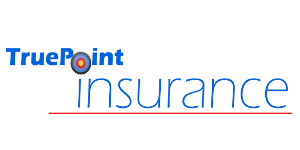 With limited options, captive agents can find themselves at a disadvantage. While independent agents have access to multiple insurance markets, however, a positive to be captive. As employees of the insurance company, captive or exclusive agents have more authority.
With limited options, captive agents can find themselves at a disadvantage. While independent agents have access to multiple insurance markets, however, a positive to be captive. As employees of the insurance company, captive or exclusive agents have more authority.
 Contact
Contact
 Email an Agent
Email an Agent

 Click to Call
Click to Call Get Directions
Get Directions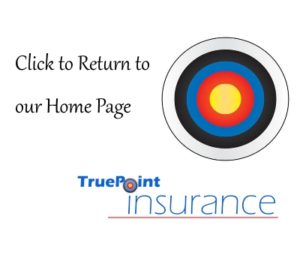


 America has
America has  period ending in 2017, Trulia reported that Condo sales had risen by 38%. During the same
period ending in 2017, Trulia reported that Condo sales had risen by 38%. During the same 

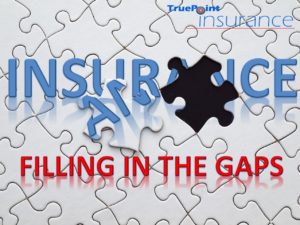
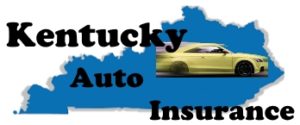
 protects us from the uncertainty that results during periods of change. Fall is also associated with a period preparation and protection. Insurance is no different. We prepare for less desirable times by purchasing insurance.
protects us from the uncertainty that results during periods of change. Fall is also associated with a period preparation and protection. Insurance is no different. We prepare for less desirable times by purchasing insurance. Brown once again put’s his trust in Lucy to hold the football. Every year, in spite of severe ridicule, Linus forgoes the big Halloween sugar score. Waiting in the pumpkin patch for a no show, the Great Pumpkin.
Brown once again put’s his trust in Lucy to hold the football. Every year, in spite of severe ridicule, Linus forgoes the big Halloween sugar score. Waiting in the pumpkin patch for a no show, the Great Pumpkin.

 This covers your possessions, whether they are at your home or away with you on vacation. Personal property is often covered on a named peril basis. This means that only the causes of loss listed in the policy section are covered. The coverage is also subject to limitations and exclusions. Types of property having significant value, such as jewelry, fine arts, collectibles, etc., may require special protection. Talk to your agent about scheduling (adding) coverage on a floater which broadens and extends coverage for high-valued possessions.
This covers your possessions, whether they are at your home or away with you on vacation. Personal property is often covered on a named peril basis. This means that only the causes of loss listed in the policy section are covered. The coverage is also subject to limitations and exclusions. Types of property having significant value, such as jewelry, fine arts, collectibles, etc., may require special protection. Talk to your agent about scheduling (adding) coverage on a floater which broadens and extends coverage for high-valued possessions. physical injury. Protection includes paying for your defense costs and any financial judgment for covered incidents. Naturally, the coverage would not apply for excluded situations, such as intentional injuries. Example: Joe is sued by a guy he injured after tackling and repeatedly punching him during a pickup basketball game. The injuries from this incident are not accidental and would not be covered.
physical injury. Protection includes paying for your defense costs and any financial judgment for covered incidents. Naturally, the coverage would not apply for excluded situations, such as intentional injuries. Example: Joe is sued by a guy he injured after tackling and repeatedly punching him during a pickup basketball game. The injuries from this incident are not accidental and would not be covered.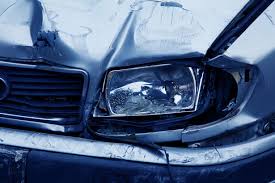 Bodily Injury Liability – insures against injury that you may cause to other persons. The key is that it involves you being held financially responsible for injuries to other persons because of your driving, your ownership or other use of your vehicle.
Bodily Injury Liability – insures against injury that you may cause to other persons. The key is that it involves you being held financially responsible for injuries to other persons because of your driving, your ownership or other use of your vehicle. accident caused by a person who has no insurance; a person who can’t be located (“hit and run drivers”); or a person who has insurance but their insurance company is insolvent.
accident caused by a person who has no insurance; a person who can’t be located (“hit and run drivers”); or a person who has insurance but their insurance company is insolvent.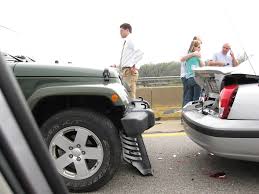 Cars are expensive to buy and repair, providing great reasons for protecting them. If you borrowed money to buy your car, or if you leased the vehicle, the lender or leasing company was likely to make certain that you had coverage to pay for any damage to the vehicle. Below are typical coverages that apply either to the vehicle or to those operating the vehicle:
Cars are expensive to buy and repair, providing great reasons for protecting them. If you borrowed money to buy your car, or if you leased the vehicle, the lender or leasing company was likely to make certain that you had coverage to pay for any damage to the vehicle. Below are typical coverages that apply either to the vehicle or to those operating the vehicle:


